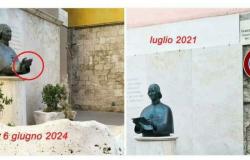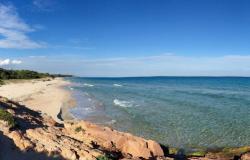Three percent is a Brazilian-produced TV series in four seasons (2016-2020), available on Netflix, which has as its central theme the meritocracythat is, that ideology which according to Nancy Fraser (The old dies and the new cannot be born2019) has replaced equality in the liberal-progressive narrative, but which we also find at the center of the rhetorical discourse of the neo-conservatives, from Thatcher to Orban to the current Italian government itself, which felt the need to name the merit the ministry of education. Michael Sandel (The tyranny of merit2020) and before him Nicholas Lemann (The big test. The Secret History of American Meritocracy1999), they explained well how the testing system helped create a social divide increasingly widespread in the United States: too many resources for ordinary families to invest in preparing for a test entirely focused on the results of purely performance exercises. The outcomes are invariably conditioned by the different contexts of origin of the subjects.
The same selection system in accessing universities is widespread, for example, in South Korea, in a context in which the logic of contemporary financialized capitalism manifests itself with fewer and fewer political and social counterweights: a striking metaphor has been Squid game (2021) and illuminating reflections also shine through in the Oscar-winning film Parasites (2019). As regards Brazil, however, another large country in which there is a system similar to the American one in higher education, it was precisely the TV series Three percent to carry out the same type of criticism, but in an even more direct way, thus adding, in the field of fiction texts, to Kurt Vonnegut’s 1952 novel, Player Piano and Michael Young’s 1958 sociological narrative, The rise of meritocracy. In the first of these two texts a company is imagined in the hands of an elite of engineers, selected through a merit system which, by destroying the middle class, delivers the majority of the population to a destiny of degradation and inactivity due to the technological development of automation. In the second, the author, without ever citing Vonnegut, described a society divided between a class of super-gifted people selected with intelligence tests and a large part of the population destined to carry out manual and care work. In both Vonnegut’s and Young’s stories, there is a story of a revolutionary movement that turns against the elite order, just as in Three percent.
The scenario in which the story of this TV series takes place is a post-catastrophic microcosm. Humanity seems reduced to a single community, strongly divided, even spatially, between a Hinterland and an island, theoffshore. Ninety-seven percent of the population lives in the hinterland, with little technology available, with scarce and cold water and in conditions of endemic economic and psychological hardship. All around the urban settlement is a desert beaten by the sun: it is a sort of favela, inhabited by ghosts that resemble those that really gather today, for example in Sao Paulo, in the squares of the center or in the Avenida Paulista just a stone’s throw away from the financial heart of the city.
Offshore, on the other hand, is an island beyond the sea, which can be accessed via sophisticated submarines. Three percent of the population lives here, selected through a test that all subjects must take at the age of twenty and for which there is no appeal test. A test that decides whether you have or don’t have the merit. Either you go to heaven, or you stay in hell. Offshore, some animal and plant species have been recreated in the laboratory, people eat in a healthy and tasty way and drink good wine, the climate is healthy, the technology is very advanced and therefore also the possibility of health care. The pattern is somewhat reminiscent Elysium (2013) by the South African director Neill Blomkamp, in which a social division of this type was imagined between the earth and a space station lavish with all privileges. But compared to Elysiumin Three percentthe problem of inequality is addressed together with that of merit.
A terrorist movement – as they said – fights against the system: the “cause”. It is significant that it is derogatorily defined, by the off-shore, as “populist” (as the anti-meritocrats were defined in Young’s book) and driven by “envy and resentment”. In three percent, moreover, the power embodied by offshore is not represented in terms of grim authoritarianism. It is, however, exercised differently by smiling and relaxed subjects, who tend to avoid the use of violence and inhabit an ecologically sustainable environment in which there is absolute equality between genders and ethnic groups and decisions are taken collegially by a democratically elected council. We would say a kingdom of diversity management and of the subsumption of emancipationist impulses detached from their social substance and universalistic essence.
The inhabitants of the hinterland are instead condemned to live without technology and with unhealthy food and air, without causing any crisis of conscience in the supposedly super-gifted offshore people: the discarded subjects are not deserving and therefore should not be pitied, while the deserving must legitimately enjoy their distinctive prerogatives. The gaze of the privileged on the inhabitants of the hinterland is in fact marked by social racism: they see them as inferior beings not because of their blood or the color of their skin, but because of the presumed insufficient quality of their intelligence. To avoid any possibility of reviving privilege through inheritance, young people who access offshore are sterilized and obviously those who have already procreated must separate from their children as well as from parents, siblings, boyfriends and friends.
The representation of how the tests are carried out is also very interesting. The tests, in fact, require logical, manual, inductive, deductive but also behavioral skills. It is not difficult to recognize those “transversal skills” today required by companies and which, for example, in Italy have been besieging schools and universities for years, colonized by an apprenticeship aimed at making individuals entrepreneurs of themselves and procurers of profit. From this perspective, we must be able to “manage stress” and relate to others in a competitive or cooperative way depending on the situation. But the test also rewards unscrupulousness: that is, if someone, in competitive games, deceives others by violating the rules, he is still considered a winner, as also happens in Squid game. A test model, that is, which more faithfully expresses actual reality, in which a network of rules covers the Darwinistic struggle for existence in which often brute and blind force prevails compared to common laws.
But how is it possible that people in the hinterland accept this state of affairs and that those affiliated with the “cause” are still a minority? Because the “process” has become a religion: a belief in the possibility of having an opportunity and being part of the three percent, supported by the belief that if you don’t succeed it is a sign of a lack of merit. It is no coincidence that in the TV series there is a character, Antonio, a preacher, clearly inspired by the religious movement of prosperity gospel that is, a version of evangelical Christianity, also spread through televangelists who support the need to demonstrate one’s virtue with wealth and social ascent. This is a religious phenomenon widespread in the United States but also in Brazil, where it contributed to determining Jair Bolsonaro’s victory in the 2018 elections.
The inhabitants of the hinterland are therefore made docile by this mirage of a better life, of which they do not know the true reality, given that no information arrives from offshore. The protagonists of the TV series (Fernando, Marco, Michele, Rafael, Joanna, who will then be joined by other friends and allies) develop, each in their own way, an awareness of the injustice of social relationships. Michele and Rafael are affiliated with the “cause”, which Joanna will then also join. But the “cause” shows all the limits of twentieth-century politics: it assigns all hope to violence and responds to a logic in which the end risks being swallowed up by the means. Killing innocents is justified – in that logic – if it serves to end an age-old injustice. The protagonists come into continuous conflict with each other, almost as if to represent the fate of contemporary social oppositions, fragmented and incapable of collective organization. Always through personal paths, marked by their own individual and postmodern “difference”, they develop two types of alternatives. First, on Michele’s impulse, the Conchiglia (the “concha”) was founded, that is, a sort of mutualistic space in the middle of the desert, where fruit and vegetables are produced at zero kilometres, they work in a cooperative way and – in opposition to the offshore ideology – “everyone is welcome”. The shell flourishes based on the idea that everyone “has value.” It’s a sort of utopia of exodus. We choose to no longer fight offshore but to create its alternative which can then attract the inhabitants of the hinterland with the power of example. However, soon, utopia collides with reality. A sandstorm and other adversities put the shell’s life at risk. Offshore it is therefore decided to avoid destroying the shell experience with a military attack, instead focusing on a softer strategy, that is, fueling discontent and instigating the excluded to invade the alternative community and request the intervention of the dominant elite . A clear metaphor of American imperialist practices, which tend to avoid resolving geopolitical conflicts in their favor by appearing as occupiers and rather aimed at penetrating the areas of their interest through secret services, economic aid and propaganda, perhaps using “orange revolutions ”. Perhaps the reference is also to the street demonstrations of the middle classes which anticipated, in Brazil, the Lava Jato judicial offensive which deposed Djlma Roussef and indicted Lula. In the end the offshore manages to destroy the shell, but the “heroes” of the narrative regroup and reevaluate the idea of opposing the source of all evil given that, as Joanna noted, until the source of injustice is destroyed, no alternative would be possible. However, they choose a path that is as bloodless as possible, although not without its blood tribute, also given the authoritarian and militaristic involution of the offshore, frightened by the worsening of the conflict. In fact, they manage to detonate an electromagnetic pulse that takes away all the energy from the offshore, blocking its technology and also involuntarily releasing nuclear radiation that makes it uninhabitable. Once they all returned inland, the community risked falling into civil war, revenge and under the yoke of André, who had become the dictator of the Offshore. In the end, however, the cooperative drive for assembly self-government prevails, relegating the despot to a minority, pushing him to suicide.
The final solution seems to appeal to the strength of the aggregation of the oppressed majority and of mutualism, which may have won – with methods as non-violent as possible – against power and abuse. But this is obviously a microcosm, in which democracy from below can function, as in Rousseau’s Geneva. It is therefore certainly not an exhaustive recipe for the cuisines of the future of our global world: but this is not what you can expect from a TV series. However, we can be surprised by its capacity for analysis and the anti-elitist values that it promotes in contrast to widespread common sense and by the hope of liberation that it tries to convey, avoiding the paralyzing effects sometimes generated by dystopia.
Salvatore Cingari






